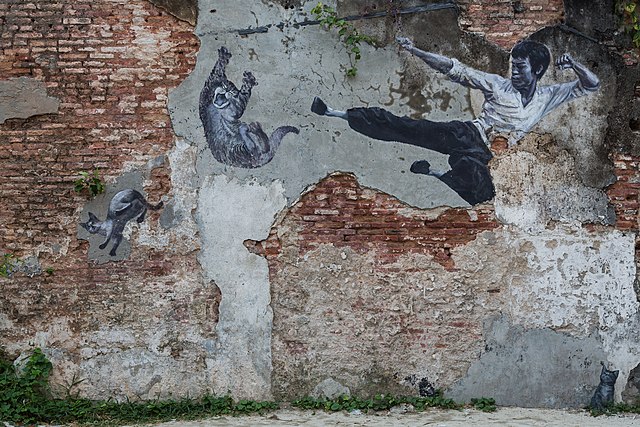
Through the generosity of the late Professor Benedict Anderson and Ajarn Charnvit Kasetsiri, the Thammasat University Library has acquired some important books of interest for students of Association of Southeast Asian Nations (ASEAN) studies, political science, literature, and related fields.
They are part of a special bequest of over 2800 books from the personal scholarly library of Professor Benedict Anderson at Cornell University, in addition to the previous donation of books from the library of Professor Anderson at his home in Bangkok. These items are shelved in the Charnvit Kasetsiri Room of the Pridi Banomyong Library, Tha Prachan campus.
Among them is a book useful for TU students interested in ASEAN studies, linguistics, literature, translation, and related subjects.
Twenty-Two Malaysian Stories: An Anthology of Writing in English was selected and edited by Lloyd Fernando. Professor Fernando (1926 – 2008) was a Malaysian author and professor in the English Department of the University of Malaya.
Lloyd Fernando was born to a Sinhalese family in Sri Lanka in 1926.
In 1938, his family migrated to Singapore. Lloyd Fernando graduated from the University of Malaya in Singapore, and became an assistant lecturer at the University of Malaya in Kuala Lumpur in 1960. He earned a Ph.D. degree from Leeds University, the United Kingdom.
Professor Fernando often wrote about the motivations and conflicts caused by writing in a language that it not the author’s native language.
Another anthology edited by Professor Fernando is Cultures in Conflict: Essays on Literature & the English Language in South East Asia.
It may be borrowed by TU students by using the TU Library Interlibrary Loan (ILL) service.
In Cultures in Conflict, Professor Fernando addresses the issue of how and why writers may be drawn to a foreign language as a vehicle for self-expression:
Imagine that the writer is in an aeroplane which we can call his world, and he has jumped out, or been pushed or forced out. He leaves behind a one dimensional world of language, religion and culture, and he falls free. Then he remembers to… pull the cord, and his parachute flutters open. The parachute is the English language…. He tugs at the language as best he can. He will probably tug according to the terrain over which he is and according to the winds that blow.
More than just another way of saying them same thing, a different language can be a lifesaver, Professor Fernando suggests.
In an interview from December 2008, his wife Marie Fernando agreed, pointing out that in terms of Malaysia,
Lloyd felt that Malay should take its proper place, in the scheme of things in Malaysia, but that English should not be neglected. So, he became very involved in this language issue. The nationalists didn’t like the idea, as English was seen as a colonial language… But I mean it’s no longer colonial. You can’t call it colonial anymore. It’s been taken over by all the different countries in which English was left as a legacy. You have Indian English, and West Indian English, U.S. English and all the other varieties of English. So, it no longer just belongs to England… Lloyd’s ideas were seminal at the time. He was promoting this idea of bilingualism; people in Malaysia should know at least two languages, i.e. Malay and English, well. By the 1990s the government was beginning to see that its policies were leading to a generation of people – of students – who were really ignorant of English and who could not communicate. Thus, since the 1990s, there has been a slow reversal process in the sense that the government is realising that you can’t do without English. It’s important; it’s a global language, after all. It’s used in the economy, in international meetings, in science, in everything. But according to Mandal, the problem is that we want to promote it simply as a utilitarian language, just for communication. Whereas, Lloyd, has all along been maintaining that you have to know a language more deeply. A language does not just consist of words. It has a whole history and culture behind it. A whole history of ideas. And you can’t just clean that out. And the best way to master English and the globalisation that is taking place, is not to reject English or to use it merely as a utilitarian tool, but to understand its cultural roots and its creativity best experienced in its literature. In the same way, of course, Lloyd keeps on maintaining that people who live here ought to know the national language as well. You see? This is the kind of issue that occurs not just in Malaysia, but also in many post-colonial countries. As Mandal and Lloyd say, some creative writers have even gone to the extent of giving up writing in English and are just writing in Malay as did some writers in former colonial countries. But a great debate is still going on about the cultural legacy left by the English on the native peoples. How do you handle it? How is it justified? Do you just remain resentful and reject it? Or do you try to make it your own just as much as your own native language?… Lloyd comes from Sri Lanka; he’s Singhalese. In Sri Lanka, you have the Singhalese and the Tamils, and the great fight going on between them. There are so many different mixtures of races in Malaysia. As I said, Lloyd comes from Sri Lanka (formerly Ceylon), but he was brought up in an English-speaking family and they emigrated here to Singapore just before the war. Malaysia and Singapore, at that time, were under British rule.

A memorial article in tribute to Professor Fernando by Professor Mohammad A. Quayum of International Islamic University Malaysia further explains,
As professor of English in Malaysia’s only university during the early years of independence, Fernando defended the language and literature in English from its detractors with conviction, but never expressed doubt about the importance of Bahasa Malaysia (or Malay) as the country’s new national language. During this time, he was “accused of being pro English and anti-Malay by a group of lecturers at University Malaya… Fernando paved the way for the growth of literary activity in English by introducing courses in Commonwealth literature and creative writing in the curriculum at University Malaya, which encouraged young students to quell anxieties that English was a colonial relic and consider it as a suitable artistic medium instead. Once asked why a Malaysian should write in English, he affirmed that a writer is not free to choose his language and could write in one in which he “not only thinks but also feels in the depths of [his] being.” No doubt, as a true blue Malaysian citizen, Fernando came to master the country’s national language, such that he would often choose to give lectures in the classroom and later voluntarily argue his cases at court after becoming a lawyer, in the Malay language. Yet English always remained his first language after, to quote from one of his interviews, “I lost fluency in my mother tongue, Sinhala.” Thus he became a champion of English and continued to create in and fight for this language of his soul.

(All images courtesy of Wikimedia Commons)
